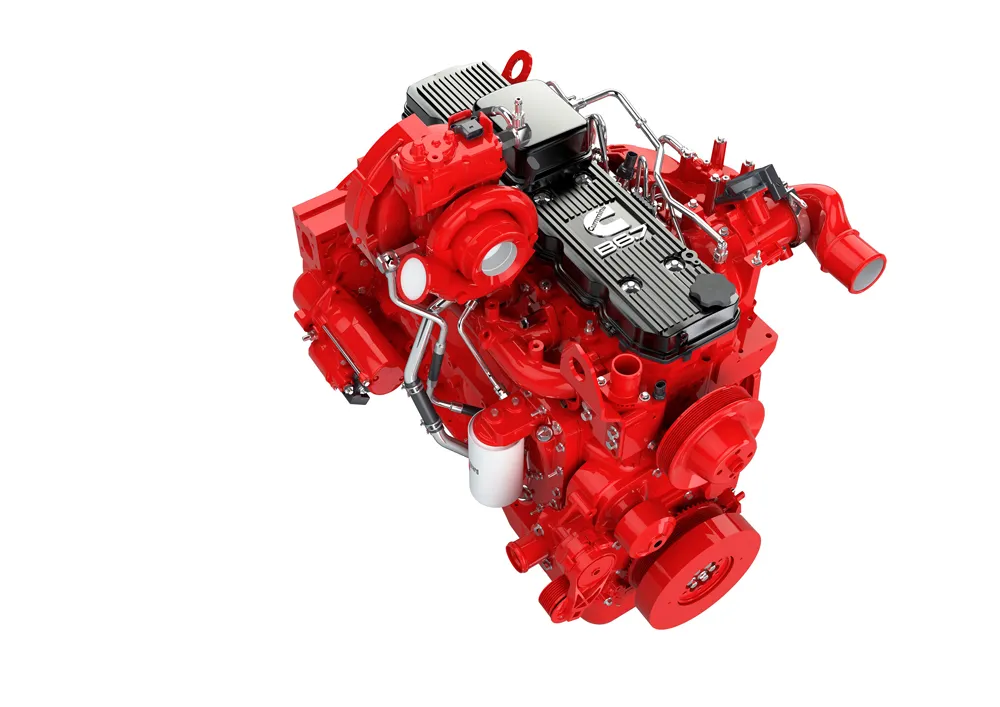3M and Chesapeake Energy Corporation have announced an agreement to collaborate in designing, manufacturing and marketing a broad portfolio of compressed natural gas (CNG) tanks for use in all sectors of the United States transportation market. Currently, the fuel tank on a CNG vehicle is its most expensive single component. It is claimed that the new CNG tanks developed through the partnership will reduce costs while increasing performance. Less expensive tanks will enable greater market adoption of CNG as
April 24, 2012
Read time: 3 mins
RSS152 3M and 5222 Chesapeake Energy Corporation have announced an agreement to collaborate in designing, manufacturing and marketing a broad portfolio of compressed natural gas (CNG) tanks for use in all sectors of the United States transportation market. Currently, the fuel tank on a CNG vehicle is its most expensive single component. It is claimed that the new CNG tanks developed through the partnership will reduce costs while increasing performance. Less expensive tanks will enable greater market adoption of CNG as an alternative automotive fuel source.
3M’s CNG tank solution combines the company’s proprietary liner advancements, thermoplastic materials, barrier films and coatings, and damage-resistant films to transform the pressure vessel industry. Using nanoparticle-enhanced resin technology, 3M Matrix Resin for Pressure Vessels, 3M will create CNG tanks that are 10 to 20 per cent lighter with 10 to 20 per cent greater capacity, all at a lower cost than standard vessels. In addition to these benefits, it is claimed that the 3M technology produces safer and more durable tanks than those currently on the market. It is expected the new tanks will be available for sale during the fourth quarter of 2012.
“3M believes in the potential of natural gas, and this agreement illustrates our commitment to the industry,” said George Buckley, chairman, president and CEO of 3M. “We are excited about this collaboration to speed the development and adoption of natural gas-powered vehicles.”
Increased political support and private investment have made natural gas a viable automotive fuel alternative with large growth potential. With more than a 100-year supply of natural gas in the United States and an average price per gasoline gallon equivalent of $1.00 to $2.00, the fuel is plentiful, affordable and domestic. The fuel also burns more cleanly than gasoline, cutting greenhouse gas emissions by 30 per cent and particulate matter by 95 per cent.
“This partnership brings together two leading companies from different sectors, both committed to advancing the natural gas transportation fuel market,” said Aubrey K. McClendon, Chesapeake’s CEO. “We applaud 3M for recognising the future of natural gas as a low-cost, cleaner alternative to gasoline, and for creating innovative tank technology that will make natural gas vehicles more affordable and accessible to fleets and individual consumers nationwide. Our country needs a solution to break the foreign stranglehold on our fuels market, and today’s announcement is another step to transition our nation away from costly imports.”
3M’s CNG tank solution combines the company’s proprietary liner advancements, thermoplastic materials, barrier films and coatings, and damage-resistant films to transform the pressure vessel industry. Using nanoparticle-enhanced resin technology, 3M Matrix Resin for Pressure Vessels, 3M will create CNG tanks that are 10 to 20 per cent lighter with 10 to 20 per cent greater capacity, all at a lower cost than standard vessels. In addition to these benefits, it is claimed that the 3M technology produces safer and more durable tanks than those currently on the market. It is expected the new tanks will be available for sale during the fourth quarter of 2012.
“3M believes in the potential of natural gas, and this agreement illustrates our commitment to the industry,” said George Buckley, chairman, president and CEO of 3M. “We are excited about this collaboration to speed the development and adoption of natural gas-powered vehicles.”
Increased political support and private investment have made natural gas a viable automotive fuel alternative with large growth potential. With more than a 100-year supply of natural gas in the United States and an average price per gasoline gallon equivalent of $1.00 to $2.00, the fuel is plentiful, affordable and domestic. The fuel also burns more cleanly than gasoline, cutting greenhouse gas emissions by 30 per cent and particulate matter by 95 per cent.
“This partnership brings together two leading companies from different sectors, both committed to advancing the natural gas transportation fuel market,” said Aubrey K. McClendon, Chesapeake’s CEO. “We applaud 3M for recognising the future of natural gas as a low-cost, cleaner alternative to gasoline, and for creating innovative tank technology that will make natural gas vehicles more affordable and accessible to fleets and individual consumers nationwide. Our country needs a solution to break the foreign stranglehold on our fuels market, and today’s announcement is another step to transition our nation away from costly imports.”






